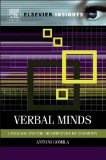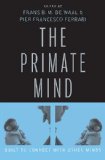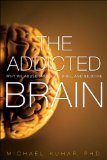January 3, 2012

Although the hardcover edition has a scheduled publication date of April 15, 2012, the Kindle edition of A User’s Guide to Thought and Meaning by Ray Jackendoff is available now.
(amazon.co.uk – Feb 2012 – hardcover)
Product description from the publisher (OUP Oxford):
A User’s Guide to Thought and Meaning presents a profound and arresting integration of the faculties of the mind – of how we think, speak, and see the world. Ray Jackendoff starts out by looking at languages and what the meanings of words and sentences actually do. He shows that meanings are more adaptive and complicated than they’re commonly given credit for, and he is led to some basic questions: How do we perceive and act in the world? How do we talk about it? And how can the collection of neurons in the brain give rise to conscious experience? As it turns out, the organization of language, thought, and perception does not look much like the way we experience things, and only a small part of what the brain does is conscious. Jackendoff concludes that thought and meaning must be almost completely unconscious. What we experience as rational conscious thought – which we prize as setting us apart from the animals – in fact rides on a foundation of unconscious intuition. Rationality amounts to intuition enhanced by language. Written with an informality that belies both the originality of its insights and the radical nature of its conclusions, A User’s Guide to Thought and Meaning is the author’s most important book since the groundbreaking Foundations of Language in 2002.
Comments (0)
- cognitive science,consciousness,language,mind,new books
December 14, 2011

Memory: Fragments of a Modern History by Alison Winter (University of Chicago Press)
(amazon.co.uk – 29 Dec)
Product description from the publisher:
Picture your twenty-first birthday. Did you have a party? If so, do you remember who was there? Now step back: how clear are those memories? Should we trust them to be accurate, or is there a chance that you’re remembering incorrectly? And where have the many details you can no longer recall gone? Are they hidden somewhere in your brain, or are they gone forever?
Such questions have fascinated scientists for hundreds of years, and, as Alison Winter shows in Memory: Fragments of a Modern History, the answers have changed dramatically in just the past century. Tracing the cultural and scientific history of our understanding of memory, Winter explores early metaphors that likened memory to a filing cabinet; later, she shows, that cabinet was replaced by the image of a reel of film, ever available for playback. That model, too, was eventually superseded, replaced by the current understanding of memory as the result of an extremely complicated, brain-wide web of cells and systems that together assemble our pasts. Winter introduces us to innovative scientists and sensationalistic seekers, and, drawing on evidence ranging from scientific papers to diaries to movies, explores the way that new understandings from the laboratory have seeped out into psychiatrists’ offices, courtrooms, and the culture at large. Along the way, she investigates the sensational battles over the validity of repressed memories that raged through the 1980s and shows us how changes in technology—such as the emergence of recording devices and computers—have again and again altered the way we conceptualize, and even try to study, the ways we remember.
Packed with fascinating details and curious episodes from the convoluted history of memory science, Memory is a book you’ll remember long after you close its cover.
Google Books preview:
Comments (0)
- cognitive science,culture,new books
December 8, 2011

Verbal Minds: Language and the Architecture of Cognition (Elsevier Insights) by Toni Gomila (Elsevier, 2011)
(amazon.co.uk – 5 Dec 2011)
Product description from the publisher:
Ten years ago, the hegemonic idea was that language was a kind of independent module within the mind, a sort of “print-out” of whatever cognitive activity was taking place, but without any influence whatsoever in that activity. While this view is still held, evidence amassed in the last 10 years suggests another view of their inter-relationships, even though exactly which one is not clear yet, in part because of the lack of a unified view, and in part because of the inertia of the previous position, in part because all this evidence must be considered together. An increasing number of researchers are paying attention to the issues involved as the human language specificity may provide a clue to understand what makes humans “smart,” to account for the singularities of human cognition.
This book provides a comprehensive review of the multiple developments that have taken place in the last 10 years on the question of the relationships between language and thought and integrates them into a coherent framework. It will be relevant for anyone working in the sciences of languages.
Comments (0)
- cognitive science,language
December 6, 2011

The Primate Mind: Built to Connect with Other Minds ed by Frans de Waal and Pier Francesco Ferrari (Harvard University Press, 2012)
(amazon.co.uk – 30 Dec 2011)
Product description from the publisher:
“Monkey see, monkey do” may sound simple, but how an individual perceives and processes the behavior of another is one of the most complex and fascinating questions related to the social life of humans and other primates. In The Primate Mind, experts from around the world take a bottom-up approach to primate social behavior by investigating how the primate mind connects with other minds and exploring the shared neurological basis for imitation, joint action, cooperative behavior, and empathy.
In the past, there has been a tendency to ask all-or-nothing questions, such as whether primates possess a theory of mind, have self-awareness, or have culture. A bottom-up approach asks, rather, what are the underlying cognitive processes of such capacities, some of which may be rather basic and widespread. Prominent neuroscientists, psychologists, ethologists, and primatologists use methods ranging from developmental psychology to neurophysiology and neuroimaging to explore these evolutionary foundations.
A good example is mirror neurons, first discovered in monkeys but also assumed to be present in humans, that enable a fusing between one’s own motor system and the perceived actions of others. This allows individuals to read body language and respond to the emotions of others, interpret their actions and intentions, synchronize and coordinate activities, anticipate the behavior of others, and learn from them. The remarkable social sophistication of primates rests on these basic processes, which are extensively discussed in the pages of this volume.
See also: Table of Contents at publisher’s website
Comments (0)
- cognitive science,culture,new books
November 30, 2011

The Addicted Brain: Why We Abuse Drugs, Alcohol, and Nicotine (FT Press Science) by Michael Kuhar (FT Press, 2011)
(kindle ed.), (amazon.co.uk)
Product description from the publisher:
What Science Has Learned About Addiction:
What causes it?
How do drugs change the brain?
Who’s most vulnerable?
Does treatment work?
What can we do?
Addiction destroys lives. In The Addicted Brain, a leading neuroscientist explains how and why this happens–and presents advances in treatment and prevention. Using breathtaking brain imagery and other research, Michael Kuhar, Ph.D., shows the powerful, long-term brain changes that drugs can cause, revealing why it can be so difficult for addicts to escape their grip.
In plain English, Kuhar describes why some people are far more susceptible to addiction than others. He illuminates striking neural similarities between drugs and other pleasures potentially capable of causing abuse or addiction–including alcohol, gambling, sex, caffeine, and even Internet overuse. Finally, he outlines the 12 characteristics most often associated with successful treatment.
Authoritative and easy to understand, The Addicted Brain offers today’s most up-to-date scientific explanation of addiction–and what addicts, their families, and society can do about it.
See also: Author’s homepage
Google Books preview:
Comments (0)
- cognitive science,new books,psychology







